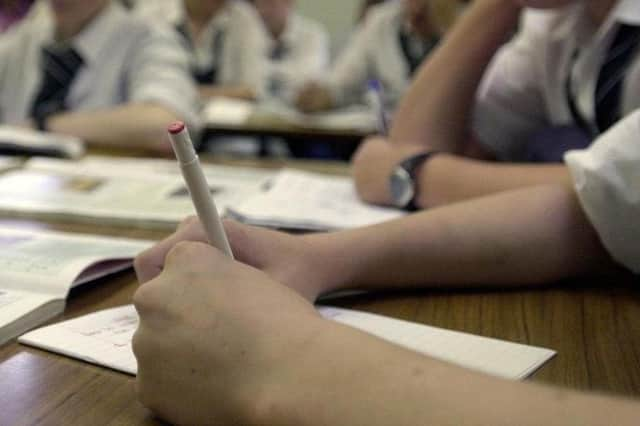Poverty-hit children much more likely to be excluded from Notts schools


That’s according to new figures disclosed by the Department for Education, and slammed by charities as exposing a “deeply flawed” exclusions system.
The data covers the 338 state-funded secondary, primary and special schools across the county, and classifies youngsters from poor families as those entitled to free school-meals.
Advertisement
Hide AdAdvertisement
Hide AdSuch pupils were excluded from school 2,069 times during the 2019/20 academic year. Twelve of those were permanent exclusions.
It meant there were 11.2 exclusions for every 100 children entitled to the meals, which was more than four times higher than the rate for children not eligible, which was 2.5 per every 100.
It was a similar picture across England as a whole, with an exclusion rate of 9.5 per cent for children from poorer households, compared to 2.6 per cent for those from better-off families.
The charity, Just for Kids Law, works with young people to ensure their legal rights are respected and their voices are heard. It says children are getting into trouble because their families cannot afford uniform and equipment, or are struggling to cope because they often go without essentials at home, such as food and heating.
Advertisement
Hide AdAdvertisement
Hide AdLouise King, of the charity, said: “Too often we see children excluded because of circumstances beyond their control.
"This can leave them feeling they’ve been treated unfairly, pushing them further away from school and their learning.
"The government needs to urgently reform the deeply flawed system.”
She urged the government to provide better financial support for families and better behavioural support in schools, including allowing youngsters to challenge unfair exclusions.
Advertisement
Hide AdAdvertisement
Hide AdGuidance from the Department for Education says schools must not discriminate against pupils when deciding on an exclusion and should take into account all underlying causes for bad behaviour. Their decisions must be “lawful, reasonable and fair”.
Nottinghamshire County Council’s education department pointed out that the number of permanent exclusions for all pupils in the county (29 from a total of 4,706) remained below the national average for the seventh consecutive year.
Marion Clay, service director of education, learning and skills, said: “The permanent-exclusion rates for pupils eligible for free school-meals are higher. However, the number of suspensions for this group has been in decline since 2017/18.”
She stressed that decisions about exclusions rest with school leaders, and added: “The council works with schools and academies to develop effective and inclusive practices to support children and young children who are at risk of exclusion.
Advertisement
Hide AdAdvertisement
Hide Ad"There are usually many factors at play, and some pupils eligible for free school-meals may also face other challenges that affect their ability to focus on learning.
"The council devolved more than £5.2 million to school partnerships, who used this shared funding to help find ways to support students at risk of exclusion with social, emotional and mental-health needs.
"We continue to work in partnership with schools and other stakeholders to enable all children and young people to flourish.”
